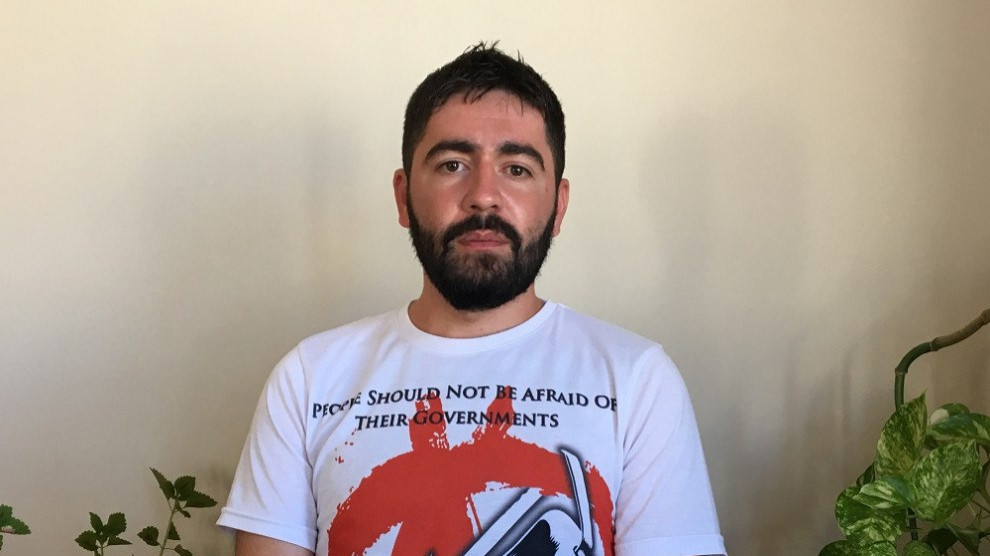The Middle East has been the scenario of wars for thousands of years. This geography, which is the target of the occupying forces because of its underground and surface resources, has been the home a of the bloodiest wars in history.
Kurdistan, which is a part of the Middle East, cannot be handled independently from the war environment. Apart from the active fighters, there are passive actors in these wars. In fact, there is a section of people who do not want wars to happen. They want to live in a peaceful environment, they want the reasons for war to disappear.
Since this group is not actively involved in the war, it is easier for it to experience the consequences or effects of the war. In addition to social, economic, cultural or political influences, a part of the society is experiencing psycho-social problems in their lives which lead them into a spiral of unrest and unhappiness because they cannot actually express their feelings and thoughts.
Social Worker Mustafa Altintop evaluated the impact of political wars on social violence to ANF.
STRESS DISORDER AFTER TRAUMA
Altintop said that the environment created by the war affected not only the warring sides, but also the people living in the war territory, and that this interaction did not recognize classes.
Altintop stated that the war mostly affected disadvantaged groups such as women, children, the elderly and LGBTI people, and emphasized that there is no social stability due to the ongoing war in the Middle East. Altintop said that the possibility of war has become an element that can affect societies.
Altintop added that it was impossible to negotiate with the affected groups at the first stage or to carry out proper investigations. In fact, exposure to violence can also motivate people to commit violence.
Altintop said: "You do not want to live in a war environment, you are demanding to be listened to, but it makes you angry that your demands are ignored by someone stronger than you. Which means you're under a lot of pressure. Therefore, this accumulated social justice belief and the anger atthe situation has to explode somewhere. This does not explode in groups that are stronger than you, but in places where you know you are the one who can dominate things. Therefore, we see that people are very angry in daily life; from fights in traffic congestion to violence towards the children."
Altintop said that the violence caused by the war is now seen as normal. "The individual in the society starts to normalize this situation when he sees traces of violence and war all over his life. Especially the traumas created by war affect the normal development of children negatively. There was a huge trauma all created.
We can still see traces of that trauma in our daily lives. Unfortunately, these are not such easy-to-erase tracks. This can have more serious impact on children who are in the process of completing their development. Therefore, violence can become a culture. So what we have is a normalization of the situation of violence."
AVOIDING REALITY
Altintop also underlined that in an individualistic society such is ours, people tend "to find ways to avoid reality. You may see people getting on with their normal lives while war is raging a few meters away from them.
We saw this happening in Kayapınar during the war in Sur. In fact it was not that people were happy. It was a way of avoiding reality. It was ignorance. Those people were traumatized. How healthy and normal would it be to play games with rummy stones when the bombs explode behind you? This has nothing to do with sensitivity or insensitivity. It has to do with a tendency to avoid reality completely. "
VIOLENCE BRINGS VIOLENCE
Underlining the necessity of showing a social will to cure the existing problems in individuals and groups who are exposed to war and post-traumatic stress disorder, Altıntop said: "We generally ignore the psycho-social effects of war. There is a reality of war and violence, and people are affected by it, so we see that people are not in a position to fight it by themselves."
These are not things that can be forgotten or normalized, say Altintop, adding: "As we normalize such situations, we are actually paving the way for similar situations. We would also undermine the belief in social justice. As people and individuals are left alone, drug use, violence against women or children, and abuse can occur. Because as long as the coping mechanisms of people fall and they cannot reach the social support mechanisms, they can use these ways to gain power or to avoid their reality. This is damaging the social structure. "














